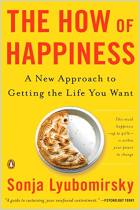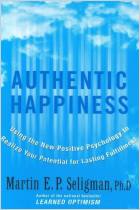Зарегистрируйтесь на getAbstract, чтобы получить доступ к этому краткому изложению.

Зарегистрируйтесь на getAbstract, чтобы получить доступ к этому краткому изложению.
Sonja Lyubomirsky
The Myths of Happiness
What Should Make You Happy, but Doesn’t. What Shouldn’t Make You Happy, but Does
Penguin Press, 2013
Что внутри?
To achieve happiness, use rational thinking and positive action.
Recommendation
Many people operate under false assumptions and expectations about becoming happy and avoiding unhappiness. They believe that difficult circumstances condemn them to lives of sadness. Award-winning psychologist Sonja Lyubomirsky disagrees. She examines common notions and myths about happiness, clarifies why and how they are flawed, and offers insightful suggestions on how to be happy even during the toughest of times. Lyubomirsky explains how to make better decisions and achieve positive attitudes that can boost your quest for contentment. getAbstract recommends her expert advice to those seeking more joy and to those who want to understand the psychological factors that often misdirect how people perceive their lives.
Summary
About the Author
Sonja Lyubomirsky is a professor of psychology at the University of California, Riverside. She also is the author of The How of Happiness, which has been translated into 19 languages.





















Comment on this summary